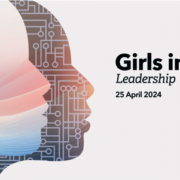While Nigeria has recently eased its lockdown restrictions, educational institutions, including universities, have remained closed. The country’s private universities have responded by continuing to develop online learning, while many public universities are waiting for their physical facilities to reopen before restarting services.
“Examinations are going to be conducted online,” Remigius Obunezi, director of ICT at Adeleke University, a private, faith-based institution 200 km north-east of Lagos, told University World News. “We are only waiting for the relevant approval from the National Universities Commission. As soon as the approval is given, within a space of two weeks, we can start administering exams. All staff and students have been adequately advised,” said Obunezi.
Undergraduate students at Adeleke have been progressively undertaking academic work online since Nigeria’s universities were closed by the government on 20 March. Online tools, for example, social messaging platforms such as WhatsApp, and video applications such as Zoom and Microsoft Teams, as well as an in-house e-learning management system, have kept academic work going, according to Obunezi.
Online examinations
With the 2019-20 second semester almost over for all students, the university is preparing to conduct examinations online for the first time, using its custom-built application. Obunezi said that lecturers and students have already been trained in its operation.
“It’s a server-based application,” Obunezi said, “and that server is a cloud server hosted in one of the most secure hosting companies in the US. So security is guaranteed. The capacity is also guaranteed. It can accommodate three times the number of our students.”
To discourage cheating during exams, Obunezi said that students studying the same course would take their examinations simultaneously, with results being circulated by the system.
“We gave it serious thought, knowing full well there won’t be physical supervision, so we will leverage on timing. Every question is allotted a time and within that time you must answer the question. The questions are shuffled and even the options for answers are randomised so you don’t get it the same way as another student. But, by the end of the day you are all still answering the same questions.”
Virtual convocations
Adeleke has created a platform for virtual convocations, so that once students have completed their examinations and the results have been confirmed by the university senate, they can graduate through an interactive online ceremony. “So they will just graduate without setting foot into our university,” Obunezi said.
At Babcock University, another private institution, at Ilishan-Remo 70 km north-east of Lagos, undergraduates have already started taking their examinations online. “Immediately after the lockdown, when it became clear that the re-opening of the university was not foreseeable, we went online,” said Kolade Ajilore, professor of communication studies at Babcock’s department of mass communication.
“We were just a week away from our second semester examinations when the lockdown was imposed, so we had to make arrangements to organise online exams. We are in the middle of them now. And maybe within another week, they will be concluded.”
Prior to the examinations, Ajilore used Zoom for his classes, which focused on PhD students and were mainly interactive.
“It is seamless if you have a good internet network and my class went on fine. I was able to administer tests, give assignments and at that level of scholarship, definitely you will expect some level of concentration and seriousness from the students. So it was fine.”
Ajilore said because doctoral students focus on research, the internet has been an invaluable aid to his students: “I can recall, during our time, whatever research you were doing, you had to do it in the library. But with ICT, whatever you need is just a button away. It’s just a question of you knowing how to search and applying some modicum of integrity.”
Internet infrastructure limitations
However, poor internet infrastructure does present challenges to some students at private universities.
“I am not comfortable with the entire e-learning programme,” a final-year undergraduate student at Adeleke University, told University World News.
“Even if you have the money, to get good internet reception is a problem. Sometimes you may be in your room and the entire environment may not have [internet] service, and you may have a class at that exact time and it won’t be possible to attend. So, if you’re given a particular hour to write an exam paper and there is no network, how will the person meet the exact timing of the school? If it was in a very technologically advanced country, like America, it could be acceptable, but this is Nigeria.”
Internet services are patchy across the country and the problem has been exacerbated by restricted national travel, preventing students from crossing state borders in order to base themselves in areas with well-developed internet services.
According to students and academics talking to University World News, academic activities of students at public universities have been largely non-existent during lockdown. However some, such as Lagos State University (LASU), have made progress.
“LASU has utilised a state government-backed e-learning platform to upload materials for its students”, said a LASU academic who requested anonymity. A LASU student told University World News that some lectures are being offered through WhatsApp and Zoom.
No immediate reopening likely
As the number of COVID-19 cases continues to grow in the country, an imminent reopening of Nigeria’s university buildings seems unlikely. According to the Nigeria Centre for Disease Control, as of 2 June Nigeria had recorded 10,819 cases of the coronavirus, with 3,240 sufferers successfully treated and discharged, and 314 deaths.
Nigeria’s universities are, however, helping the country’s response to COVID-19. A group of scientists from different institutions, including Adeleke University and Ladoke Akintola University of Technology (LAUTECH), north of Lagos, have developed two potential vaccines.
“In summary, the team has been able to construct two potential vaccines for SARS-CoV-2, which should work … to protect the general populace against the novel COVID-19, if it becomes successful in the animal trial,” the scientists said in a joint statement, signed by their coordinator, Professor Kola Oloke, vice-chancellor of Precious Cornerstone University, a private faith-based higher education institution in Ibadan.
Courtesy: University World News





























